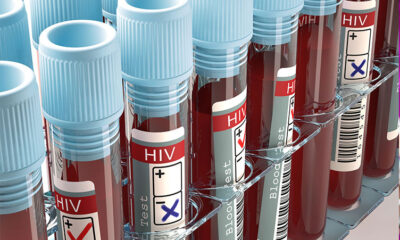Health
Civil Society Demands Immediate Ban on Junk Food in Ugandan Schools, Calls for Urgent Policy Reforms
A powerful coalition of civil society organisations (CSOs) advocating for food justice has issued an urgent plea to the Ugandan government: immediately ban the sale of junk food in school canteens and swiftly approve critical policies to combat a surging tide of diet-related non-communicable diseases (NCDs) among children.
In a joint statement released today, Wednesday, July 2, 2025, SEATINI-Uganda, the Center for Food and Adequate Living Rights (CEFROHT), CONSENT-Uganda, and FIAN-Uganda warned of an alarming rise in conditions like stomach ulcers, diabetes, cancer, and heart disease, particularly impacting school-age children due to unregulated food environments.
“We cannot continue feeding our children poison and call it love. It is a slow and silent way of killing them,” the statement read, underscoring the severity of the crisis.
The CSOs’ five-point appeal includes:
- An immediate ban on junk food sales in school canteens.
- Urgent approval of the draft Nutrient Profiling Model (NPM).
- Enhanced public awareness campaigns on the dangers of unhealthy diets.
- Strict regulation of advertising targeting children.
- Mobilization of key stakeholders—parents, media, and schools—to shift consumption patterns towards healthier choices.
David Kabanda, Executive Director of CEFROHT, emphasized the constitutional imperative, stating, “Government, especially Ministry of Health officers, will be in violation of the Constitution if they fail or overlook the urgency in passing the Nutrient Profiling Model or guidance on classification of food and nutrients of critical concern.” The NPM is a vital tool designed to classify food based on its nutritional value, guiding healthier choices.
Jane Nalunga, Executive Director of SEATINI-Uganda, cautioned that continued inaction risks undermining national food security, nutrition, sustainability, and socio-economic development.
Uganda is already feeling the profound weight of this health crisis. According to the Uganda Demographic Health Surveys (DHS), 5% of children under five are overweight or obese. The situation escalates dramatically among school-aged children (3–16 years), where obesity stands at a staggering 32.3%, with an additional 21.7% classified as overweight. Nationally, non-communicable diseases now account for approximately 33% of all deaths in Uganda.
Henry Kimera, Executive Director of CONSENT-Uganda, pointed to the insidious role of marketing. “There is currently a very aggressive, but dangerous nature of advertising to children. Bright packaging, catchy jingles, and TV ads on children’s programs and online platforms make these foods look fun and exciting, but in reality, many of them are dangerous when consumed regularly,” Kimera stated.
The CSOs noted that unhealthy foods and sugary beverages have become alarmingly cheap, with prices dropping to as low as UGX 500, making them widely accessible. Marketers are exploiting emotional and social appeals to influence vulnerable children and teenagers.
The Dangers of Ultra-Processed Foods
Professor Achileo Kaaya from Makerere University’s Department of Food Technology and Nutrition stressed the critical need for food safety awareness. “We need to remember that food can actually kill you, despite the fact that it is supposed to sustain our lives,” he warned.
Professor Kaaya detailed the hazards in food—biological, physical, and chemical—with particular emphasis on ultra-processed foods, which are rich in trans fats, excessive salt, and free sugars. “These nutrients, instead of protecting your body, end up harming it. Ultra-processing removes natural ingredients and adds harmful ones like sugar, salt, and fat—especially in the kind of food consumed heavily by children,” he explained.
He also raised concerns about early exposure to unhealthy diets in pre-school-aged children. “These days people start taking children to school as early as two years. Who looks at the quality of the food given to them? Often, it is food high in fat or sugar. Science has already proved that they can be detrimental. Let us not give our children foods high in free sugar, saturated fat, or salt.” Long-term consequences, he added, include digestive complications like constipation and even colon cancer due to the lack of dietary fiber in many refined foods.
“Proper child feeding is a shared responsibility among parents, policymakers, researchers, and extension officers,” Professor Kaaya concluded.
The CSOs further linked the emergence of a new strain, Type 5 diabetes, to sustained exposure to ultra-processed foods and obesogenic environments. They argued that the government’s substantial Shs 11.4 trillion allocation to the Human Capital Development Programme in the 2025/26 budget must be matched with stronger regulation of food marketing and school canteens to ensure a truly healthy future.
Rehema Namaganda, Executive Director of FIAN Uganda Chapter, lamented the absence of a comprehensive national framework law on food and nutrition. “The Ministry of Health should give Ugandans this ‘food classification tool’,” she urged. “It should include all non-sugar sweeteners and harmful additives. Nutrient profiling allows people to make informed choices and discourages consumption of dangerous products.”
The CSOs urged Uganda to draw inspiration from countries like Chile, Mexico, South Africa, and the UK, which have successfully implemented robust food policies such as sugar taxes, advertising bans, and front-of-pack warning labels. In Chile, for example, sugary drink purchases dropped by 23.7%, and childhood obesity rates have notably stabilized following similar interventions.
Comments



























